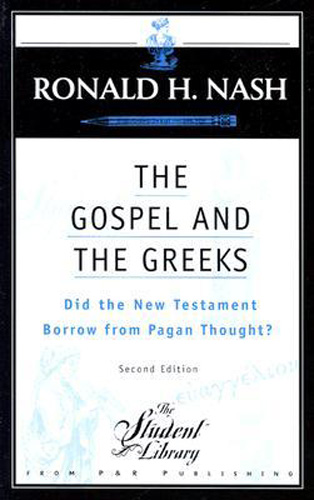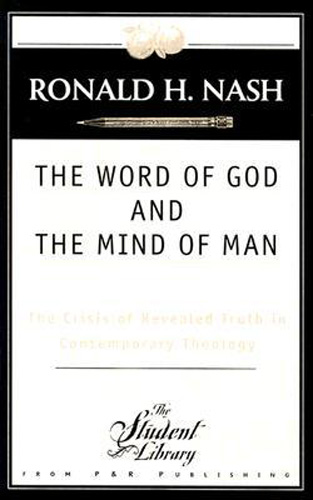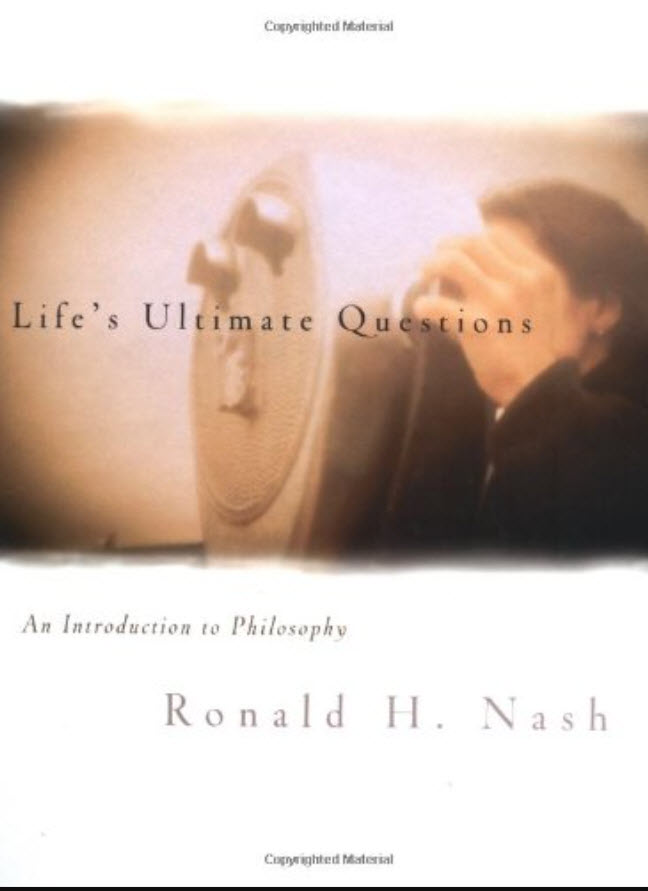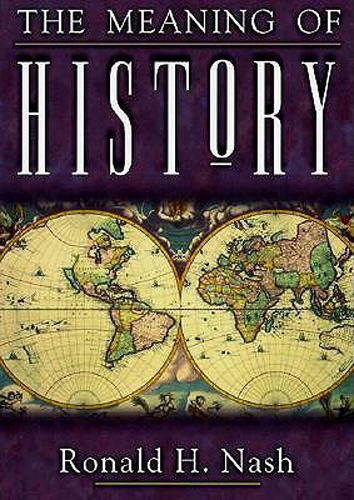History of Philosophy and Christian Thought - Lesson 1
Introduction to History of Philosophy and Christian Thought
Introduction

Introduction to History of Philosophy and Christian Thought
History of Philosophy and Christian Thought
Introduction
Introduction
0% Complete- 0% Complete
Thales and Anaximander were two philosophers in the sixth century BC that lived in Miletus.
0% Complete - 0% Complete
Heraclitus and Pythagoras lived into the 5th century BC.
0% Complete - 0% Complete
Any worldview addresses the subjects of God, ultimate reality, human knowledge, ethics and human persons.
0% Complete - 0% Complete
Fundamental beliefs of a naturalistic worldview is that nothing exists outside the physical universe and that all things evolved.
0% Complete - 0% Complete
Plato was a student of Socrates and lived into the fourth century BC. He opposed hedonism, empiricism, relativism, materialism, atheism and naturalism.
0% Complete - 0% Complete
Plato described the universe as having three levels: the world of particulars, the world of forms, and the form of the good.
0% Complete - 0% Complete
Plato's view of the universe was dualistic.
0% Complete - 0% Complete
One of Plato's fundamental arguments is that the human soul is immortal.
0% Complete - 0% Complete
Evaluation of Plato's arguments and comparison of Plato's philosophy with biblical theology.
0% Complete - 0% Complete
Empiricism teaches that all human knowledge arises from sense experience. Rationalism teaches that some human knowledge does not arise from sense. experience
0% Complete - 0% Complete
Aristotle was a student of Plato and lived in the fourth century BC.
0% Complete - 0% Complete
Aristotle rejected Plato's doctrine of two worlds.
0% Complete - 0% Complete
Discussion of Aristotelian philosophy as it relates to the incarnation.
0% Complete - 0% Complete
Aristotle's philosophy as it relates to attributes of God and fundamental assumptions about psychology.
0% Complete - 0% Complete
Aristotle made a distinction between passive intellect and active intellect.
0% Complete - 0% Complete
Discussion of the strengths and weaknesses of the law of non-contradiction.
0% Complete - 0% Complete
Discussion of the nature and substance of matter.
0% Complete - 0% Complete
Hellenistic philosophy was an approach that was popular from the fourth century BC to the fifth century AD.
0% Complete - 0% Complete
Stoics were determinists who believed in living according to nature.
0% Complete - 0% Complete
Hedonism emphasized pleasure as the greatest good. "Eat, drink and be merry for tomorrow we might be dead."
0% Complete - 0% Complete
Philo's philosophy was based on a synthesis of Stoicism and Platonism.
0% Complete - 0% Complete
Implicit "Logos" Christianity is an underlying theme in the book of Hebrews.
0% Complete - 0% Complete
Plotinus lived in the third century AD and is considered the founder of Neoplatonism.
0% Complete - 0% Complete
Augustine is a Latin church father, is considered by many to be one of the most important figures in the development of Western Christianity.
0% Complete - 0% Complete
Augustine wrote Confessions as an autobiographical work to record his experience as a sinful youth and his experience becoming a follower of Christ.
0% Complete - 0% Complete
Augustine wrote to refute some heresies of the day by focusing on the concepts of faith and reason.
0% Complete - 0% Complete
Augustine writes about the problem of evil and describes evil as the absence of good.
0% Complete - 0% Complete
Augustine writes to refute Pelagianism by focusing on the biblical teaching about sin.
0% Complete - 0% Complete
Augustine writes to refute Donatism.
0% Complete - 0% Complete
The fundamental idea of skepticism is that no one can know anything. Augustine this statement contradicts itself because the skeptic is claiming that you can know that you can't know anything.
0% Complete - 0% Complete
When Augustine wrote "The City of God," he had a linear view of history.
0% Complete - 0% Complete
In Augustine's theory of knowledge, he says that eternal reason and human reason are two different levels of reason.
0% Complete - 0% Complete
Augustine was personally convinced of the importance of divine illumination.
0% Complete - 0% Complete
The intellectual background of Thomas Aquinas was influenced by the discovery of ancient manuscripts, the rise of universities, the rise of religious brotherhoods and the rise of Muslim philosophy.
0% Complete - 0% Complete
Aquinas describes faith as whatever a human can know through special revelation, and reason as whatever a human can know outside of special revelation.
0% Complete - 0% Complete
Aquinas attempts to prove God's existence.
0% Complete Aquinas describes four kinds of law as eternal, divine, natural and positive.
0% Complete- 0% Complete
The rationalists and empiricists set the stage for Kant and other philosophers of the modern era.
0% Complete - 0% Complete
Kant argued that moral requirements are based on a standard of rationality he dubbed the “Categorical Imperative."
0% Complete - 0% Complete
Kants two worlds are the phenomenal world and the noumenal world.
0% Complete - 0% Complete
Discussion of criticisms and questions about Kant's ideas.
0% Complete - 0% Complete
Similarities between Kant's ideas and postmodernism.
0% Complete - 0% Complete
The dialectic is a central idea in Hegel's philosophy.
0% Complete - 0% Complete
Ideally, Marxism begins with class struggle, then revolution, dictatorship of the proletariat, withering away of the state, and a utopian classless society.
0% Complete - 0% Complete
Discussion of four faces of Marxism.
0% Complete - 0% Complete
Nietzsche proclaimed that, "God is dead." His cure was to live life knowing there is no ultimate meaning. Kierkegaard emphasized a worldview based on true faith.
0% Complete
In this class, you will explore the rich history of philosophy and its relationship with Christian thought. The course begins with an introduction to the definition and importance of philosophy in Christian theology. You will then delve into the evolution of philosophical thought from the Pre-Socratic era, through the Classical Greek philosophers, and into the Hellenistic period. As you progress, you will discover how early Christian thought emerged and developed during the Patristic period, with a special focus on Augustine. The class continues with an examination of medieval Christian thinkers, such as Anselm and Thomas Aquinas, and concludes with an analysis of modern philosophers like Descartes, Kant, and Kierkegaard, and their influence on contemporary Christian thought.
Two other books that are recommended reading for this class are Confessions by Augustine and Phaedo by Plato.
Recommended Books
The Gospel and the Greeks: Did the New Testament Borrow from Pagan Thought?
Examines contemporary claims for Christian dependence on Hellenistic philosophy, Greco-Roman mystery religions, and Gnosticism. He finds the case for dependence in the...

The Word of God and the Mind of Man
The last two centuries of Christian theology are the record of an evolving attack on the role of knowledge in the Christian faith. The purpose of this book is to challenge...

Life's Ultimate Questions: An Introduction to Philosophy
Life's Ultimate Questions is unique among introductory philosophy textbooks. By synthesizing three distinct approaches

The Meaning of History
The Meaning of History is a concise look at the meaning of the history of the world from the viewpoints of major historians and philosophers. By examining the individual...

Dr. Ronald Nash
History of Philosophy and Christian Thought
th620-01
Introduction to History of Philosophy and Christian Thought<
Lesson Transcript
About 25 years ago, I was in a well-known American city. I won't name the city because I don't want you to know the school and I don't want you to know the individual I'm going to talk about. During my early years as a Christian. This particular Christian thinker had written a number of very solid books, which had been very helpful to me early in my early in my education. And so since I was in this city was on the East Coast, I decided I'd go by a particular seminary and see if I could meet this gentleman. And while I don't know whether I called his secretary or not, but I learned that he was there and I walked on the campus park. My rental car there, went up to the room and shook hands with a man whose early books had really been a great help to me. One reason I'm not mentioning his name is because about that time in his life, this particular gentleman began to move away from his early theological convictions. Let's be frank, he became a liberal. All right. I thought he had betrayed American evangelicalism, but at that time, he was still I still thought of him in those early terms. And so I asked him how his classes at this urban seminary were going. And he said, Well, now I'll tell you the truth. One of my big frustrations, one of my big disappointments is the fact that hardly any of my students know anything about philosophy. Now, this tragic condition is even worse today as America's colleges and universities continue to water down their curriculum.
[00:02:07] I know in the case of the state university, where I taught you had a liberal arts requirement, but you could meet that requirement in a variety of different ways. You could take a philosophy course from my department. I was the department head at that time. You could take a religion course from my department and we had a pretty outstanding religion faculty. In fact, at that time we had a larger group of PhDs teaching in our department than many seminaries had. We had 14 PhDs, or you could take art appreciation or music appreciation. Now, I love art, I love music, but that shouldn't be in the same category with philosophy. Do you understand? And you could also take folklore. Of course, in the case of Ivy League schools, and I hear I think of one of my alma maters, Brown University. There are no requirements at all. You can take any collection, of course, as you want, and you don't even have to worry about failing a course. Ted Turner was in my graduating class from Brown University. One day I stopped Ted in the hallway and I said, Ted, think television. That's what I said. That's what I said. Ted doesn't remember that. Now, philosophy really is fundamental to all kinds of areas. You really are not equipped to think about theology. You aren't equipped to think about the critical issues that you will encounter throughout your seminary career unless you've got some foundation in philosophy. Now, I know that some of you are. You took a number of philosophy courses as an undergraduate, and I commend you for that. I do want to suggest, however, that even if you did take a history of philosophy course as an undergraduate, you didn't take this course.
[00:04:08] This course is different than anything else that you would have studied anywhere in the world, even if it was a Christian, a Christian college. Because what I am trying to do is introduce you to the major thinkers in the history of ideas and explain their systems and their ideas and explain to you the most valuable lessons you can learn from them. But I am primarily interested in relating these great ideas to important notions that we encounter in our study of the Christian faith. For example, in a few minutes we will begin talking about a number of philosophers who existed in ancient Greece before Plato and Socrates, a number of philosophers who taught a number of strange sounding ideas. And I hope that you're going to see very quickly that these strange sounding names and the strange sounding idea. Is really do have a relevance to the Christian faith.